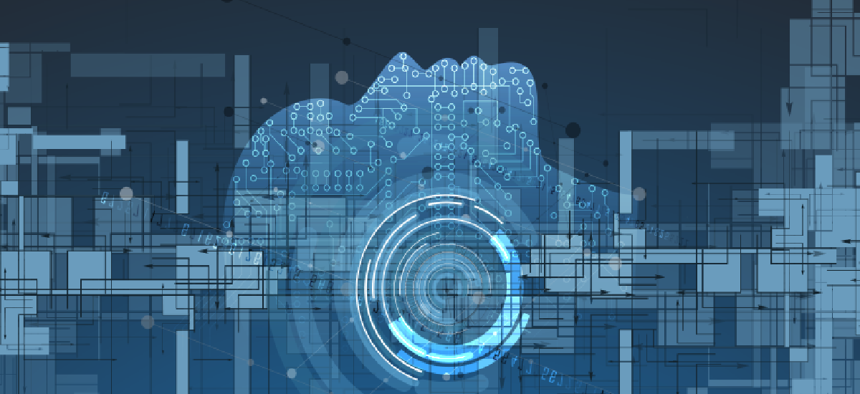How AI will change the way government works

By automating mundane administrative tasks, AI creates work experiences that unleash productivity, bringing out the best in human workers.

For many people, artificial intelligence conjures up images of sci-fi movies and the future. They see it as a threat to their jobs and sometimes even their safety, but AI represents the biggest leap forward in terms of work productivity since the personal computer – and few other industries can benefit from AI as much as government. With AI, we can change the way government works and help employees do their job better.
AI is already integrated into numerous cloud platforms and can be used to discover new information and deliver outcomes instantly. I like to refer to this as "practical AI." AI has the potential to improve employee experiences by speeding up decision-making and automating mundane and repetitive tasks. Bringing machine learning to everyday work enables government agencies and departments to make better decisions faster, because they do not have to hunt for data and aggregate it into a spreadsheet. By building intelligence into platforms, AI helps manage complex workflows and allows organizations to.
One way that AI will be applied in the workplace is automating service requests. Most companies have an IT service desk as well as a customer-support center. These functions ensure that customers and employees receive help in a timely manner — whether it is a request for a new computer, a password reset, or the status of a repair. Manually triaging thousands of incidents or cases, categorizing tasks and routing work can consume resources, introduce human error, and slow resolution. In fact, a new report from Accenture found that customer support functions spend up to 12 percent of their time categorizing, prioritizing, and assigning tickets. Meanwhile, AI accurately categorizes requests nearly instantly. It eliminates the bottleneck created by agents having to manually assign, categorize and route requests.
A full two days a week is wasted on manual administrative work, according to the recent State of Work survey conducted by ServiceNow. If an agency with 5,000 people automated those processes, they could get 4 million work hours back a year. Adding AI frees up employees to do the work they want to do — spurring creativity. Nearly half of respondents (48 percent) said work levels increased by 20 percent or more after they adopted AI solutions. Additionally, 91 percent of executives say their skilled employees spend too much time on admin tasks, and 93 percent believe that reducing mundane tasks unleashes employee creativity.
To properly implement AI solutions across government agencies, we need to define which tasks are best suited for humans and which ones should be performed by AI. The government has a term, "inherently governmental," to describe work, processes, or decisions that must be done by government employees. Contractors do much of the work in our government agencies, but certain work is "inherently governmental" in nature. As we move into an age defined by AI, we need to identify and define the work, processes, and decisions that are "inherently human." We are going to increasingly work in a "blended" workplace with AI systems and humans working together to achieve a mission.
There are certain activities within any work environment that can only be performed, or should only be performed, by humans. While there may be many more human activities designated as "inherently human" in the beginning, I believe that as humans become more comfortable with the role of AI in the blended workforce less and less work will be designated as "inherently human." There will always be a need for humans to remain "in charge" from factual, responsibility, and liability aspects as well as from emotional and psychological ones.
We spend a third of our lives at work. It shapes who we are, how we feel, and how we interact with the world, so we must create great work experiences -- and this is what AI does. AI creates work experiences that unleash productivity, bringing out the best in us. Rather than fearing machines stealing jobs, we need to understand how AI will change the way government works though small, but practical ways and prepare the workforce of the future for this change.


